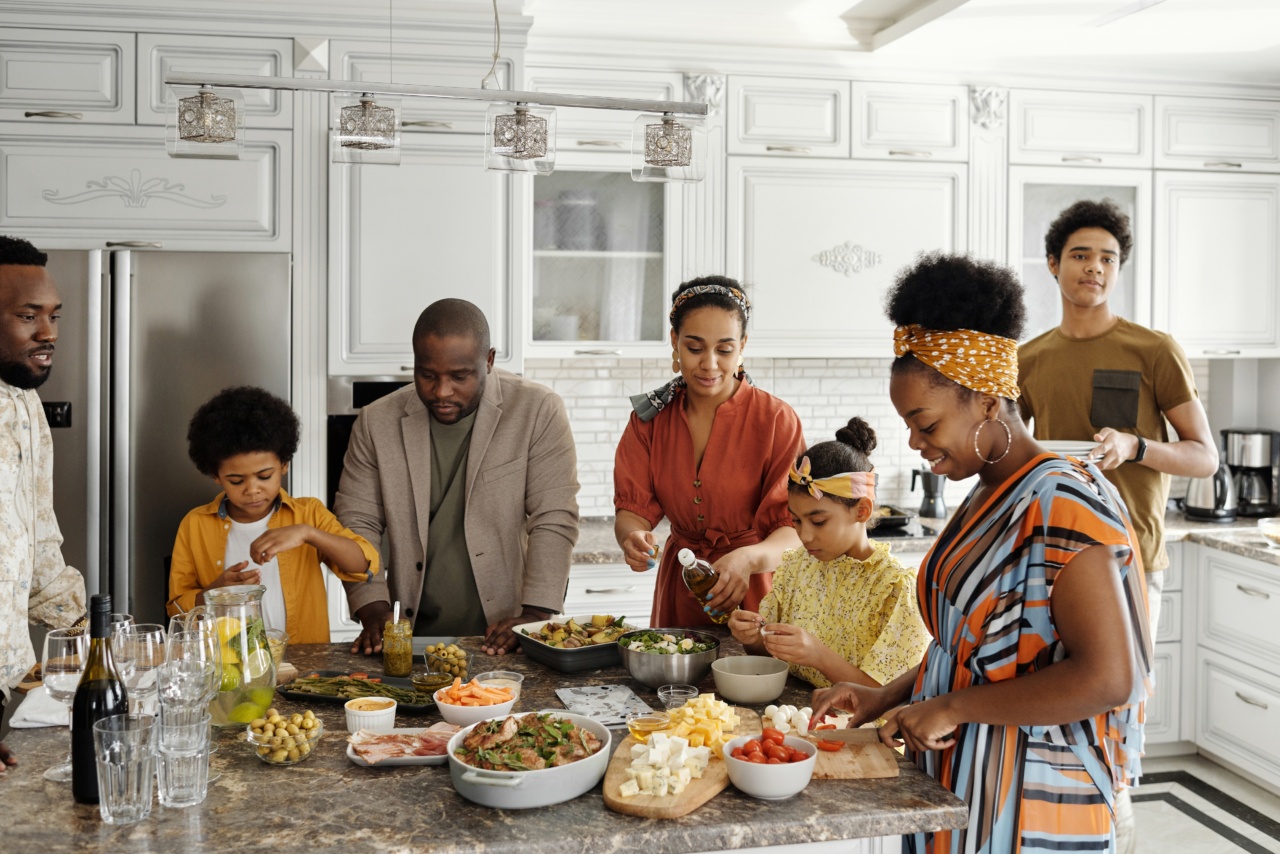The holiday season is a time for festive gatherings and indulgent meals. However, for those with GERD (gastroesophageal reflux disease), the holiday season can bring about a lot of anxiety.
GERD is a digestive disorder that causes acid reflux, leading to symptoms like heartburn, chest pain, and regurgitation. While it may seem challenging to navigate holiday meals with GERD, with the right strategies and a little preparation, you can still enjoy the festivities without triggering your symptoms.
In this article, we will explore some tips for surviving holiday meals with GERD, ensuring that you have a pleasant and heartburn-free holiday season.
1. Plan Ahead
Prioritizing your health and well-being during the holiday season is crucial when you have GERD. Start planning your holiday meals in advance to ensure that you have control over the ingredients and cooking methods.
If you’re attending a potluck or gathering, consider contacting the host to discuss your dietary restrictions and offer to bring a dish that suits your needs.
2. Choose GERD-Friendly Ingredients.
Many holiday dishes can be modified to reduce their acidity and fat content, making them more compatible with a GERD-friendly diet. Opt for lean meats like turkey or chicken instead of fatty ones like ham or beef.
Steer clear of high-fat side dishes and dressings, and choose fresh vegetables and salads instead. Use herbs and spices to add flavor to your dishes, as they are generally better tolerated than traditional high-acid condiments.
3. Mindful Eating.
Eating slowly and mindfully can significantly reduce your risk of experiencing GERD symptoms during holiday meals. Take small bites, chew thoroughly, and savor the flavors.
Avoid overeating by paying attention to your body’s hunger and fullness signals. By practicing mindful eating, you can prevent overloading your stomach and minimize the chances of acid reflux.
4. Watch Your Portion Sizes.
Portion control is fundamental when managing GERD symptoms. During holiday meals, it can be tempting to indulge in large portions of your favorite dishes. However, larger meals put more pressure on your stomach, increasing the likelihood of acid reflux.
Opt for smaller portions and listen to your body’s cues to avoid overeating.
5. Avoid Trigger Foods.
Identify your trigger foods and avoid them during holiday meals. Trigger foods vary from person to person, but common culprits include citrus fruits, tomatoes, onions, chocolate, spicy foods, and caffeine.
By knowing your triggers, you can make conscious choices to exclude them from your holiday menu.
6. Stay Hydrated.
Proper hydration is crucial for overall health and maintaining digestion. Ensure you drink sufficient water throughout the day, especially during holiday meals.
By staying hydrated, you can help dilute stomach acid and alleviate the chances of acid reflux.
7. Don’t Lie Down Immediately.
After indulging in a hearty holiday meal, avoid lying down immediately. Wait at least two to three hours before reclining, as lying down shortly after eating increases the risk of acid reflux.
Instead, take a leisurely walk or engage in light activity to aid digestion.
8. Avoid Alcoholic Beverages.
Alcoholic beverages can worsen GERD symptoms by relaxing the lower esophageal sphincter (LES), a muscle that acts as a barrier between the stomach and esophagus. This relaxation can lead to acid reflux and heartburn.
Opt for non-alcoholic alternatives or mocktails during holiday celebrations to minimize the risk of triggering GERD symptoms.
9. Manage Stress.
Stress can exacerbate GERD symptoms, making it essential to manage stress levels during the holiday season. Practice relaxation techniques like deep breathing, meditation, or yoga to help reduce stress and promote overall well-being.
By keeping stress under control, you can minimize the likelihood of experiencing acid reflux.
10. Consult Your Doctor.
If you’re concerned about managing your GERD symptoms during the holidays, it’s vital to consult your doctor.
They can provide personalized advice and recommend appropriate medications or lifestyle modifications to help you enjoy the festivities without compromising your health.
By implementing these tips and strategies, you can navigate holiday meals with GERD while still savoring the joys of the season.
Remember to plan ahead, choose GERD-friendly ingredients, practice mindful eating, watch your portion sizes, and avoid trigger foods. Stay hydrated, avoid lying down immediately after meals, and opt for non-alcoholic beverages. Manage stress and consult your doctor if needed. With these steps, you can ensure a happy, heartburn-free holiday season.






























